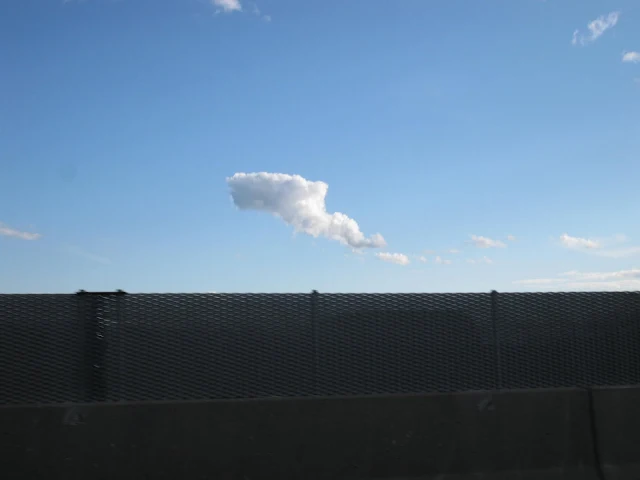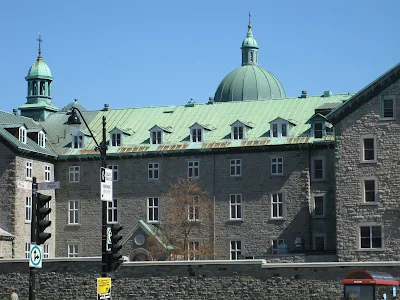For some of us, the Jean Paul Gaultier exhibition currently at the Montreal Museum of Fine Arts is of only peripheral interest. Gaultier doesn’t need my review of his work, he’s wealthy and well known, but I also wonder if this work belongs in a museum? Probably not. However, it is a lot cheaper for a museum to present
haute couture from France than traditional “art.” I am not too sure why this exhibition was presented in the summer months as it might have little appeal to tourists who would correctly think they would be seeing "art" in a museum, not a fashion show from France. And, at first, it has the aura of the worst of French society and the fashion industry, exclusivity, insularity, smugness, self-righteousness, and self-satisfaction.
It was not before I had seen half of the show that the clue into this exhibition of Gaultier’s work dawned on me. There were the creepy talking mannequins, the pointy bras popularized by Madonna, and the kind of costumes you see in fashion magazines that are not for actual wearing but are the folly and pretense of fashion designers like Gaultier. Gaultier is well known and lives in an exclusive world, one to which most of us don't have access.
But there is a clue to Gaultier's exhibition. It is that Gaultier has done what all great artists try to do, he has perceived the
zeitgeist, he knows what will be popular before the public knows what they are want, and he explores the collective psyche of French society. In this exhibition, Gaultier has opened the collective unconscious and manifested it in his designs. This is not to say that Gaultier is a “great artist,” but only to state that he has done something remarkable, something that is of interest. These items of clothing express the collective unconscious of the French nation, each is an expression of some archetypal aspect of the French psyche.
Gaultier’s exhibition is all about the psychic content of French consciousness and it is an expression of archetypes. The exhibition disturbs some of us because psychic content can be disturbing. And what is it that Gaultier pulls up into consciousness? It is about glamour, extroversion, colour, pretence, and appearance without depth. But it is also about fun, costume, and wearing our psychological complexes in public.
Gaultier’s show is a carnival of appearance, it shows a life of great variety and imagination, it is a celebration of life, and a celebration of superficial folly signifying very little to the average viewer. It is not my world but I can appreciate what Gaultier is doing because if you compare Gaultier’s vision to a possible exhibition of what comprises the American psyche--the growing spiritual emptiness of American society, the lack of culture in much of America, America as the military police of multi-national corporations, and of all the other stereotypes that have at least an essence of truth to them--then Gaultier's vision has a significance that may have been missed. His vision is, at the least, the expression of psychic content--the collective unconscious, archetypes, dreams--and it is both fascinating and an affirmation of life.





.jpg)











































